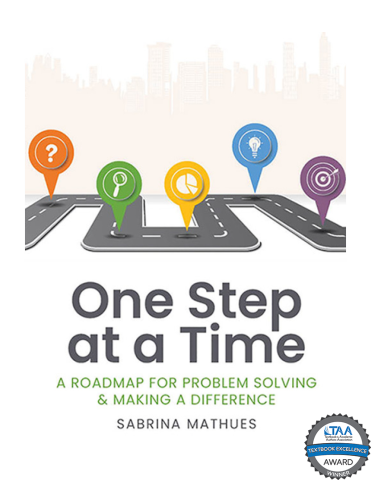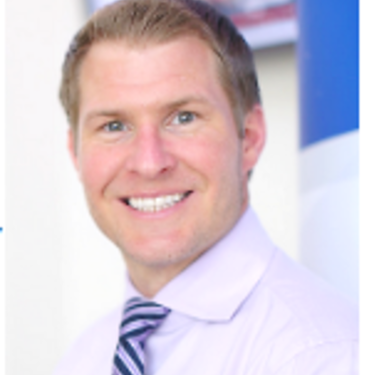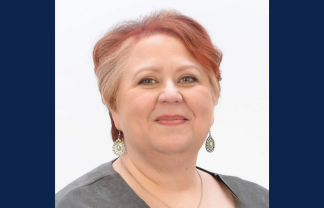Questions? Request Information
UAGC Award-Winning Curriculum
Health & Wellness Degree Courses
Your online health and wellness courses combine foundational knowledge with applied learning, preparing you to meet the demands of today’s evolving health care industry. You’ll study connections between lifestyle choices, disease prevention, and health outcomes, while gaining experience in nutrition, stress management, musculoskeletal health, and wellness program design. Through your coursework, you will learn to design, implement, and evaluate wellness programs for diverse populations, addressing health challenges such as chronic disease prevention, mental health support, injury prevention, and health equity. The program culminates with a capstone, where you’ll apply your skills to develop a comprehensive wellness plan, graduating ready to lead and advocate for healthier living.
Your path to a Bachelor of Arts in Health and Wellness at UAGC is clear and achievable. To graduate, you will complete 120 total credits: 36 core course credits, 43 general education credits, and 41 elective credits. You will need to complete 30 upper-division credits, of which 18 credits must be from the major program. A total of 30 credits must be completed at the University of Arizona Global Campus to meet the residency requirement. You may also be able to transfer eligible credits from prior college coursework, community colleges, military service, professional training, or other approved experiences. All transfer credits are subject to UAGC policies and require official transcripts. Once reviewed, approved credits will be applied to your program, helping you save time, reduce costs, and stay focused on building the career-ready skills employers value.
This program is not designed to meet the state educational requirements for a specific professional license or certification in any state. Students seeking licensure or certification in a particular profession shall carefully research the requirements prior to enrollment and regularly review the requirements as they are subject to change. Requirements vary by state. The University of Arizona Global Campus does not guarantee that any professional organization will accept a graduate’s application to sit for any exam for the purpose of professional certification. Further, a criminal record may prevent an applicant from obtaining licensure, certification, or employment in their field of study.
The Online Teaching Support Certification recognizes programs that require all online faculty to undergo training in best practices for online course delivery, provide faculty with ongoing pedagogical support, encourage faculty professional development to increase their knowledge and skill in online teaching, emphasize instructor availability and feedback to learners, and collect and use feedback from learners to improve online teaching. Learn More

The Online Learner Support Certification recognizes programs that provide all the critical student and academic services needed for learner success and use learner feedback to continuously improve those services.

Customize Your Bachelor of Arts in Health & Wellness with UAGC Emphasis
-
Do you have an interest in studying important questions like how a country builds wealth and what policies help economies grow? If so, the Business Economics emphasis may be for you! This emphasis provides the critical knowledge you need to understand the impact of the economy on businesses, individuals, and the global community. Learning economic concepts will assist you in understanding how to analyze scarce resources, how to structure effective consumer incentives, and how public policies may impact an economy. Finally, the Business Economics emphasis includes topics such as profit maximization, international trade, and how to solve contemporary business problems in a global environment. The following courses are a part of the emphasis:
Undergraduate Business Economics Emphasis Courses
ECO 320 International Economics
3 Credits
This course will focus on the global environment of firms with particular emphasis on economic variables such as GDP, inflation, interest rates, and exchange rates. Topics include international trade, international finance, and regional issues in the global economy.
ECO 406 Business Cycles & Growth
3 Credits
Topics include analysis of economic fluctuations and their impact on corporations and consumers; different explanations for business cycles; monetary and fiscal policy for stabilizing economic fluctuations; effects of public debt, investment, employment and trade policy on economic growth. Prerequisite: ECO 203.
ECO 408 Managerial Economics
3 Credits
This course will focus on the application of economic principles and analyses to contemporary business problems and managerial decision making. Emphasis will be given to price and production decision making for profit maximization, investment decision making for a new project, strategic decision making in various business situations, and decision making with risks and uncertainty. Prerequisite: ECO 204.
-
The Cognitive Studies emphasis is designed to introduce you to the study of the brain and how we learn, solve problems, and make decisions. You will discover the unique needs of learners with cognitive delays, as well as programs to address those needs. You will also learn to identify changes in brain development over time and analyze their impact on cognitive functions.
Undergraduate Cognitive Studies Emphasis Courses
EDU 411 Reading & Cognition
3 Credits
The task of learning to read is a very complex process involving the application of perceptual, sensory, linguistic, and cognitive skills to making meaning of text. Exploration of the specific cognitive functions that are applied while reading and strategies supporting reading instruction and reading comprehension skills will be addressed. The implications of digital media on reading skills will also be explored in this course.
PSY 317 Cognitive Functioning in the Elderly
3 Credits
This course will introduce changes both cognitively and physically, that occur in both healthy and pathological aging. This course will emphasize changes in functioning, learning, language-processing, decision-making, memory, and reasoning in older adults Prerequisite: PSY 101 or equivalent.
PSY 323 Perception, Learning, & Cognition
3 Credits
Students will study research and theory about mental processes that go between experience and the human mind. Students will gather and interpret data for several simple experiments that demonstrate classic research findings in perception, learning, and cognition. Perception entails the mental processes involved in the organization and interpretation of sensory experience. Learning entails relatively permanent changes in behavior that result from experience. Cognition explains how the mind processes information, how we encode, store, and retrieve memories, and how we use information to form beliefs, make decisions, and solve problems. Prerequisite: PSY 101 or equivalent.
-
Perhaps you want to be your own boss, or you enjoy out-of-the-box thinking, solving puzzles, resolving problems, and finding creative ways to address issues in the current business environment. The Entrepreneurship emphasis may be just what you are looking for. This emphasis can help you visualize and realize skills you will need to succeed in a global business environment. It enables you to craft a foundation of skills and essential knowledge to build a business from its inception and transform it into sustainable growth. You will learn how to analyze risk, address and analyze the impact of various environmental factors in the political and ethical realm, and learn to design and compile business plans. The following courses are part of the emphasis:
Undergraduate Entrepreneurship Emphasis Courses
BUS 362 Introduction to Entrepreneurship
3 Credits
This dynamic course is based on a unique model of entrepreneurial methodology developed by the University of Arizona Global Campus. Entrepreneurship encompasses imagining the unknown, taking inspired action, and embracing uncertainty to create a new future. It involves the identification, evaluation, and exploitation of opportunities to address challenges and to solve problems. Students will learn how to use imagination, creativity, innovation, and entrepreneurship to bring new ideas to fruition that inspire others. Students will create a feasible blueprint for a venture opportunity idea of their own. This course will be the beginning of the journey to becoming an entrepreneur.
BUS 433 New Business Strategy
3 Credits
This course is intended to provide prospective entrepreneurs with information and tools for evaluating opportunities for starting a new firm—how to choose markets for entry, when to enter, and what resources and capabilities it will take to enter and provide a platform for future growth. Prerequisite: BUS 362.
BUS 437 Business Plan Development
3 Credits
BUS 437 students will use prior learning to create a comprehensive business plan for a new venture. The emphasis is on using a systematic four-step method to frame business plan development activities. Each week student teams will develop one segment of the team’s business plan and receive feedback from the instructor through a game simulation. Prerequisites: BUS 362.
-
In the Real Estate Studies emphasis you’ll learn the ins and outs of a fascinating industry and prepare for examining the markets and financing methods for residential and commercial properties. Discover the many trends that influence property valuations and learn the best practices to benefit and safeguard investors. These three courses comprise the Real Estate Studies emphasis:
Undergraduate Real Estate Studies Emphasis Courses
RES 301 Principles of Real Estate
3 Credits
This course introduces students to the general principles of real estate, to include industry terminology, ethics, deeds, listing and purchase agreements, agency, contracts, and property valuation decisions. Emphasis will also be on factors impacting local and national real estate markets.
RES 325 Real Estate Practice
3 Credits
This course examines the basic job functions of real estate salespersons and brokers. Property listing, advertising, escrow, sales, and establishing a client base will be covered with practical applications for completing successful transactions.
RES 345 Legal Aspects of Real Estate
3 Credits
This course is a study of the legal system and its impact on purchase, ownership, sale, and leasing of real estate. Topics to be covered include contracts, wills, zoning, and environmental law, as well as Constitutional issues in real estate
-
Courses within the Supply Chain Management area of emphasis highlight effective management of supply chain processes and information flow in order to optimize activities and costs, and successfully serve their customers. You will study individual functions of supply chain and strategic relationships among these functions, which include: purchasing, inventory control, warehousing, quality, sustainability, financial controls; importing, exporting, trade agreements, contract negotiations, and transportation. You will learn to apply the core business knowledge to managing wider organizational processes. The following three courses comprise the Supply Chain Management area of emphasis:
Undergraduate Supply Chain Management Emphasis Courses
MGT 323 Principles of Supply Chain Management
3 Credits
This course introduces supply chain management, and the related costs. It provides a systematic overview and analysis of the elements of supply chain functions in widely varying types of industries and agencies, including handling, warehousing, inventory control, and financial controls. Prerequisite: MGT 330.
MGT 370 International Supply Chain Management
3 Credits
Topics covered in this course include the government’s role in global logistics, the global logistics environment, ocean and air transportation, transportation to Canada, Mexico, and the European continent including intermediaries, documentation, insurance, exporting, and importing. Current trends in globalization will also be explored and evaluated. The role of logistics and transportation organizations in the global supply chain process will be discussed.
MGT 400 Logistics Management
3 Credits
This course is an overview of logistics management in the modern business environment. It examines financial and economic aspects of logistics and highlights the value created by logistics activities. Students will evaluate transportation and warehousing management strategies. The course takes a practical approach to logistics and applies innovative logistics principles to business situations. The course examines contemporary topics, including the role of inventory, that support the organization’s strategic goals. Prerequisite: MGT 300.
Career Paths with a Health & Wellness Degree
See how your BA in Health and Wellness translates into real-world roles. The wellness industry is rapidly growing due to aging populations and an increased focus on preventive health. Further, with greater emphasis on workplace wellness, demand for professionals in this field continues to rise. Graduates pursue opportunities in health education, wellness coaching, community health programs, corporate wellness, and fitness management. Some of the industries you may choose to work in include:
- Nonprofits
- Health care
- Health education
- Corporate and employee wellness programs
- Fitness and recreation
Discover more information about degree programs in business at the University of Arizona Global Campus.


Meet Our Faculty
Bachelor of Arts in Health and Wellness FAQs
-
Your online Bachelor of Arts in Health and Wellness will give you the tools and knowledge to make a difference in people’s lives. Graduates can pursue roles in corporate wellness, community health organizations, health care settings, and nonprofit environments. With training in nutrition, fitness, stress management, and health communication, you’ll be equipped to guide individuals and organizations toward healthier choices and long-term well-being.
-
Yes, a BA in Health and Wellness is worth it. The health care industry is one of the most critical and fast-changing sectors¹ in the global economy, and this program equips you with practical, career-ready skills that are valued across corporate, public, and nonprofit settings. As demand¹ for workers skilled in wellness and preventative care continues to grow, you will be well-positioned to contribute to your field on Day One.
Source:
1. U.S. Bureau of Labor Statistics. (2020). TED: The Economics Daily. Retrieved October 15, 2025, from https://www.bls.gov/opub/ted/2020/5-out-of-20-fastest-growing-industries-from-2019-to-2029-are-in-healthcare-and-social-assistance.htm -
Your BA in Health and Wellness curriculum includes courses in human health and disease, nutrition, musculoskeletal anatomy, wellness for special populations, stress management, and health research. The program culminates in a capstone project, where you’ll apply your skills to design and evaluate a real-world health and wellness initiative.
-
The University of Arizona Global Campus is accredited by the WASC Senior College and University Commission (WSCUC). The BA in Health and Wellness at UAGC does not have programmatic accreditation.
-
No. This program does not require an internship, making it more flexible for working adults and nontraditional students. Applied learning is built into the program through projects, simulations, and a capstone experience.
-
This program is not designed to meet the state educational requirements for a specific professional license or certification in any state. Students seeking licensure or certification in a particular profession shall carefully research the requirements prior to enrollment and regularly review the requirements as they are subject to change. Requirements vary by state.
-
This program is designed to be completed in 208 weeks. Typically, it takes approximately four years to earn a BA in Health and Wellness degree online, and students must complete 120-semester credits worth of courses with a portion related directly to the chosen major. The University of Arizona Global Campus offers a flexible online format that helps you balance school, work, and family responsibilities. The online Bachelor of Arts in Health and Wellness is taken one course at a time in 5-week terms, and many students can accelerate their path to graduation by transferring eligible college or prior learning credits.
Other Degrees That May Interest You
You’ll find degree programs that suit a variety of interests and may enhance a wide scope of career opportunities at UAGC. Explore similar programs to find the right path for you.









